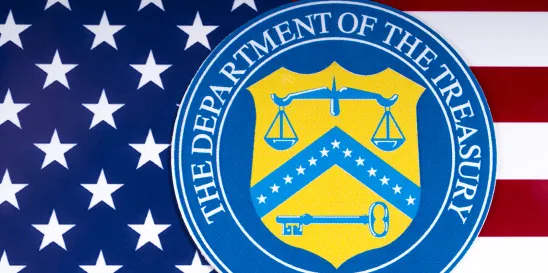The Office of Foreign Assets Control (OFAC) of the U.S. Treasury Department, in the last few days, imposed the draconian penalty of designating two shipping vessels and their registered owners in the UAE and Turkey as Specially Designated Nationals because these parties violated the Price Cap policy on Russian crude oil. These are the first sanctions to be issued by OFAC for Price Cap violations since the Coalition was formed in December 2022, but they are likely indicative of further enforcement activity.
The Price Cap Coalition is an international partnership of the United States, the G7, the European Union, and Australia. To limit Russia’s ability to fund its war against Ukraine, the Coalition implemented a Price Cap on Russian-origin crude oil and petroleum products. The Price Cap prohibits western maritime service providers, insurers and oil brokers, among others, from dealing in Russian-origin crude oil that is sold from a Russian port above $60 per barrel.
In the recent enforcement action, the sanctioned vessels were identified as the SCF Primorye and the YasaGolden Bosphorus and carried crude oil priced at $75 and $80 per barrel, respectively. Both vessels conducted port calls in the Russian Federation and used U.S. based service providers while transporting the Russian origin oil, thus violating the Price Cap policy. OFAC also sanctioned the registered owners of these vessels, United-Arab Emirates-based Lumbar Marine SA and Turkiye-based Ice Pearl Navigation Corp. The issuance of the sanctions carries severe implications for Lumbar Marine SA and Ice Pearl Navigation Corp. U.S. persons are now prohibited from doing any business with these entities. Consequently, no U.S. maritime service provider or broker can engage in any transaction involving these firms or their vessels. The sanctioned parties are also effectively precluded from conducting U.S. dollar transactions, as U.S. correspondent banks may not process transactions involving these entities.
OFAC also highlighted a Coalition Advisory for the Maritime Oil Industry and Related Sectors, issued the same day, to assist the maritime service industry in identifying actors in the shipping sector that may breach the Price Cap policy. The Advisory recommends, among other actions, that industry stakeholders require appropriately capitalized P&I insurance, monitor high-risk ship-to-ship transfers, and request associated shipping and ancillary costs.
While the OFAC action today targeted non-U.S. operators of oil cargo vessels, we caution that OFAC’s enforcement action could move downstream to non-U.S. purchasers of Russian-origin oil products. Firms, such as major refiners, acquiring Russian origin-oil in transactions involving Western shippers, insurers, brokers, or other maritime service providers must be diligent in taking steps to ensure they are not complicit in breaching the Price Cap. Among other steps, purchasers of Russian origin-oil should receive certificates from sellers verifying compliance and require invoices that itemize the price per barrel separately from other costs, such as shipping and insurance.
Catherine Summa, Litigation Associate, co-authored this article.




 />i
/>i

